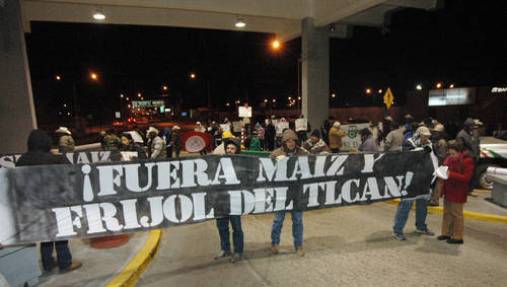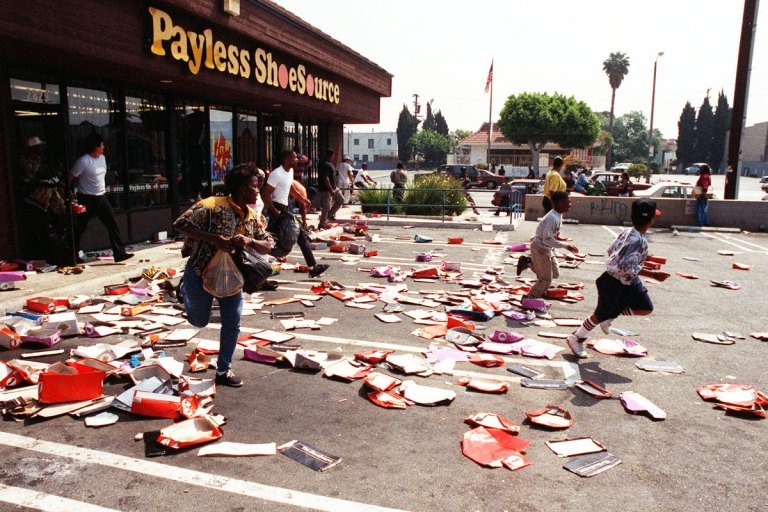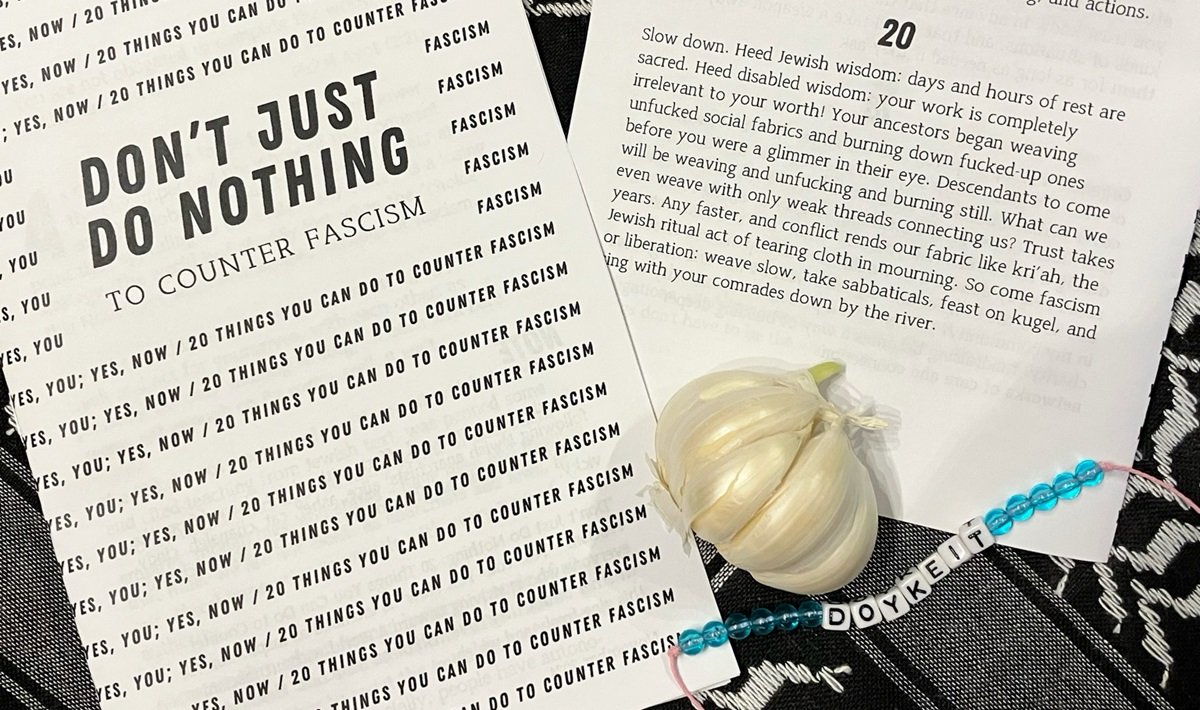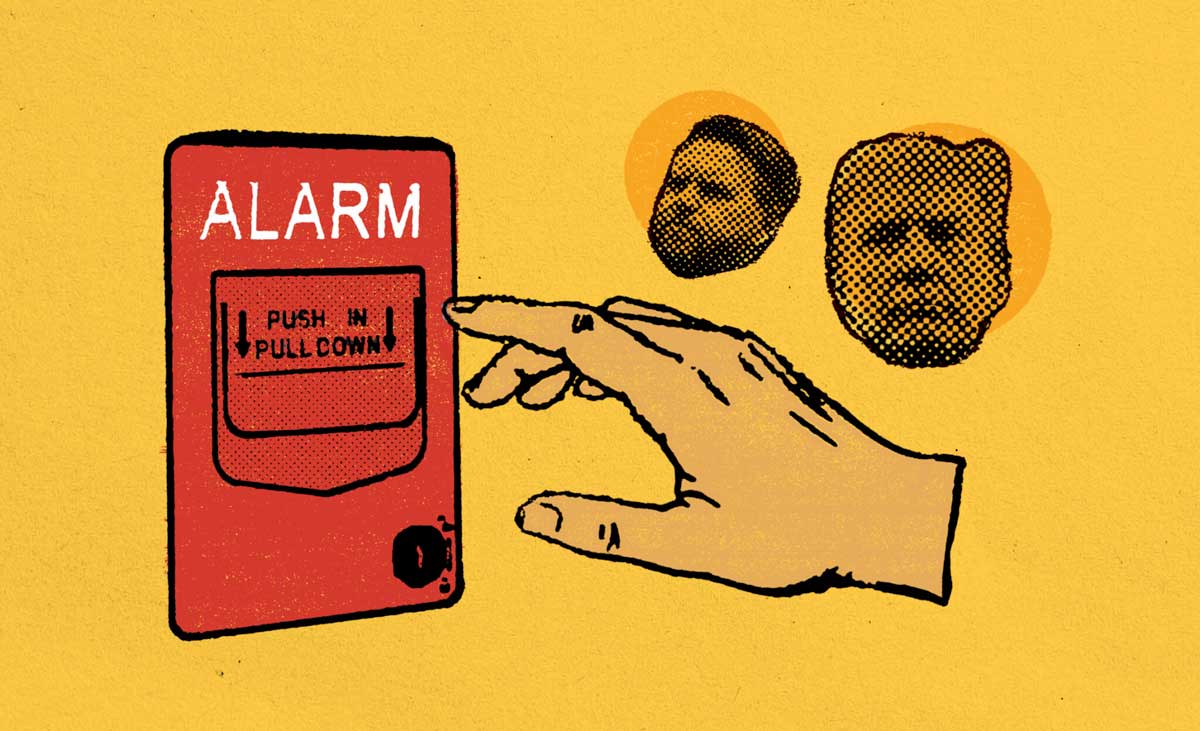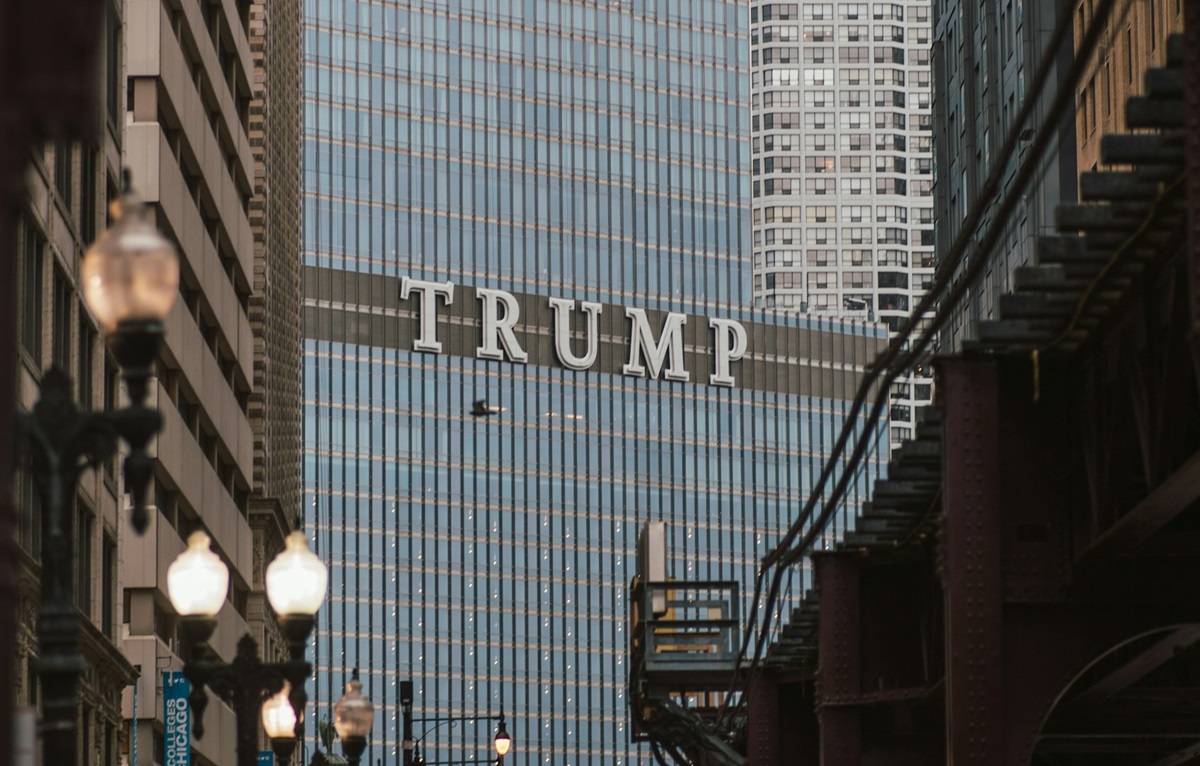Filed under: Capitalism, Critique, Development, Southwest, White Supremacy
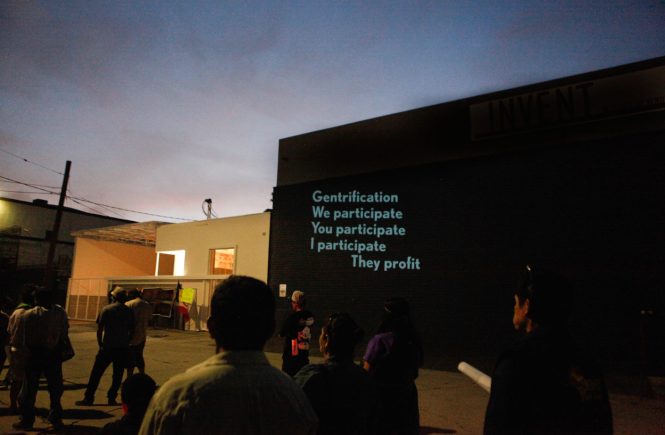
From Lucha No Feik
…the onus must be on describing the struggle as hardly being just against a gallery, an eviction or new development being pushed by the city. It is but a part of the broader struggle against capitalism. Any move towards a positive program within emerging forms of anti-gentrification struggles only weakens the anticapitalist resolve to be found as these struggles grow more and more militant. Calls for new real estate or property developments to be transferred over to ‘the community’ are at once impossible demands, since in no form whatsoever will the city or any developer simply hand over very deep investments to ‘the community’ at large. Additionally, a neighborhood is no way a ‘community.’ As communists we must make clear that there is no “community” to be found on the territory held by capitalism. Those of us fully subsumed within capitalist relations may make mutual aid organizations, solidarity networks and other forms that breach the atomization we find, but we must recognize our losses as such.
Community is what is to come, what we have now is but a unity in separation 1. The desire to maintain a continuity in a specific place, by fighting displacement, is a natural response by those of us who already have felt violent the dispossession of place before.
Last to arrive, first to go
The economic violence which befell México with NAFTA (known in Spanish as TCLAN) served as the launching point for the rebellion in Chiapas by the Zapatistas. It also triggered the push of barely middle-class, working-class and peasants to the north as NAFTA pushed down the price of their labor power and of the commodities they produced. In Los Angeles, those who were once pushed by this economic violence (or previous forms of it) now find themselves being pushed out once again.
As rents ‘soar’ in Los Angeles 2, more and more we have to begin to wonder where will those who are necessary for the social reproduction of the city live? The city & developers may be profiting as more of the city deeply gentrifies, but we have seen in the past what the proletarians of Los Angeles have done when pushed to the edge by both indirect (economic) and direct (police) domination.
As once said, “What the bourgeoisie therefore produces, above all, are its own grave-diggers” 3. Proletarian violence has always served as a check on the capitalists and their lackeys, but what form could revolt against ever-rising rents & displacement in Los Angeles even look like beyond tenant rights advocacy and protests? Joshua Clover postulates 4 that the time of the strike, as a check on the price of labor power, has historically given way to the riot as a check on the price of commodities, wherein looting sets the price of commodities to zero. Further, he notes that the blockade constitutes a kind of riot, wherein perhaps the attempt to blockade the further encroachment of art galleries, as flagships for gentrification, in Boyle Heights could constitute a slow moving riot. A riot where residents, and those in solidarity, are helping to put a check on the price of rent. But of course this is a riot to be even further generalized. To set the cost of housing to zero would constitute nothing short of a full-scale insurrection, the riot’s desire: the commune.
Class, race & immigration
We cannot ignore the elephant in the room when the agents of gentrification, on the terrain of identity, are submitted to a simplistic litmus test of who is brown or down enough to be a good person to live in a neighborhood. We must talk about class.
Then came the wine bar, the coffee house and so on.
Turns out the business owners were themselves the children and grandchildren of immigrants. Some grew up in the area. They see the changes, not as gentrification, but rather the evolution of a neighborhood. 5
In the US it is often easier to bring up race than class thus neglecting the use of class analysis (but this is to be expected from a local public radio station). The ideology behind the handwashing of the upwardly-mobile Chicanxs in Boyle Heights done here is what some have classified as ‘gente-fication’ :
what [Chicano hipsters] are doing has been called “gentefication” — gente means “people” in Spanish. However, the shared cultural and ethnic background hasn’t made local residents and this spate of newcomers get along any better. 6
With this in mind, those in BHAAAD (Boyle Heights Alliance Against Artwashing and Displacement) correctly highlighted that even those who are not total newcomers to the area could be part of the wave of gentrification happening in Boyle Heights.
[Self-Help Graphics] is one of many parts in the process and problem of gentrification. In the violence that gentrification perpetuates, in the unsafe and unstable reality of the majority of Boyle Heights residents live in, we say then those complicit or refusing to chose a side should not feel safe. 7
“There are moments where you have to decide which side you’re on”8 and the investigative work of Defend Boyle Heights has shown which side Self-Help Graphics is on. We cannot rely on simplistic identity politics to figure out who is on what side of the fight against gentrification.
Those who choose to fuck with us will be brown, queer, women, trans*, black and might have come from some brokedown hoods but that does not detract from their fucking with us. Capitalism is deeply and inextricably racialized but it also allows for even those who are racialized to join the game if they play by the rules. The rules are set by the market where profit is the only endgame. They will come and say they want what is best for the community, they will ask for our input, they will include some of us in their process but ultimately they will profit. 9
We can hope (as well as act so) that the tactics and forms of struggle that Boyle Heights’ residents have set in motion spread and escalate. Shit was thrown at one of the new galleries. Can we help it if the galleries already stunk before this attack? The anger and the distrust felt towards the non-profits, ‘community galleries,’ the city government, ‘radical artists,’ developers and turncoats is inspiring. As communists we must also say what only we can say; that what we desire is not merely affordable housing but a world where access to housing is not an issue; that we desire not just a space(s) for art, but a world where our creativity is not confined to a separated, specialized sphere of our lives; that we desire not more well-paid jobs but a world without work; that what we desire is not community control of police but their wholesale abolition; that we do not desire a better seat at the table of Capital but to abolish Capital altogether.
Those in struggle will be invited to speak on panels in museums, in galleries, at festivals, in universities but as noted by others, the struggle is not to be won in these spaces. These spaces are where struggles go to die. Conversation, dialogue, debate, or inquiry is not what has been lacking. What is lacking is the radical acts of people that are fucking tired of this shit.
Note: when the term ‘communist’ is used we use it in the broad sense of those in struggle to bring about full communism, not an endorsement of authoritarian or statist communist regimes or Communist Party politics. Thus we quote Marx: “Communism is for us not a state of affairs which is to be established, an ideal to which reality [will] have to adjust itself. We call communism the real movement which abolishes the present state of things. The conditions of this movement result from the premises now in existence. 10
- Endnotes, “A History of Separation” ↩
- L.A. Curbed, “Report: L.A. Rents Are Going to ‘Soar’” ↩
- Marx & Engels, The Communist Manifesto ↩
- Joshua Clover, Riot. Strike. Riot. ↩
- KPCC, “Boyle Heights: ‘As American as we want and as Mexican as we want’” ↩
- KPCC, “‘Gentefication’ vs. gentrification in Boyle Heights, Long Beach and other SoCal hip spots’” ↩
- Defend Boyle Heights, “ABOUT SELF HELP GRAPHICS ACCOUNTABILITY SESSION AND BEYOND” ↩
- L.A. ONDA, “PSSST STINKS!!!” ↩
- Ibid ↩
- Karl Marx, “The German Ideology“.” ↩


